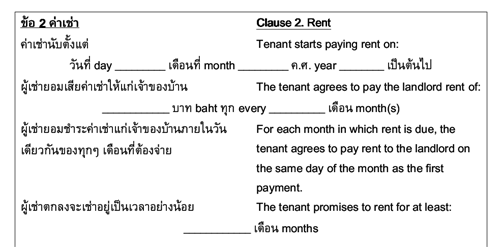Companies that operate internationally may often face demands for bilingual contracts in foreign jurisdictions.
Bilingual contacts are particularly common in China, and this article is written based on our experiences there. The issues that may arise, and the practical approach for dealing with them, may however also be relevant for entering into bilingual contracts in other jurisdictions.
Introduction
Bilingual contracts are increasingly common in China. In many cases, this is a practical necessity because the Chinese party does not have the required English language skills. Other reasons could be local requirements to register the contract with public authorities, the need to report internally to group companies, or to present the contract to third parties. Sometimes bilingual contracts are also chosen because it is considered respectful towards the local business partner.
In our experience, when bilingual contracts entered into there is often a lack of awareness of risks of imprecise translations or even intended differences between the two language versions. Through our work in China, we have seen many examples of extensive contradictions between the English and Chinese texts in bilingual contracts. Sometimes it is not regulated in the contract how such contradictions are to be resolved. And even if the contract contains a prevailing language clause, this may not always be sufficient to avoid disagreement on the correct understanding of a contract. Contradictions between the English and Chinese text may thereby impact both the parties’ compliance with the contract and cause difficult disputes.
Prevailing language clauses for better or worse
The risk of contradictions between the English and Chinese text is often attempted mitigated by including a so-called “prevailing language clause” wherein it is stated that e.g. the English text shall prevail in case of contradictions with the Chinese text. This is a good starting point, but may create a false sense of security.
For example, the Chinese text of the prevailing language clause may contain the opposite regulation, i.e. stating that it is the Chinese text that shall prevail in the event of contradictions with the English text.
Another example is that the prevailing language clause in English and Chinese are alike, but that other regulations in the Chinese contract text contain explicit wording that the Chinese text shall prevail in the event of contradictions.
These types of situations can lead to great uncertainty in terms of which language version shall prevail. In the event of a lawsuit before Chinese courts or arbitral tribunals in such contradiction of language cases, one should be prepared that Chinese judges will let the Chinese language version prevail.
Challenges in practice
If the Chinese counterparty relies on the Chinese text and this contradicts with the English text on e.g. product specifications, this may result in material deviations in the delivered product. Often, such discrepancies will not be discovered before the mistake is already made, and cannot be rectified without significant delays and costs.
Further, the non-Chinese party may risk exposing itself to a completely different risk than assumed if the Chinese text contains different regulations of e.g. limitations of liability than the English text.
We have also seen cases where the Chinese text contains provisions on rights or obligations that are not mentioned in the English text at all, e.g. extensive exclusivity rights in favour of the Chinese party.
The above are just a few examples of how contradictions between two language versions of a contract text can play out in practice. In addition, it should be mentioned that it requires significant skill to write a Chinese contract text in a manner that precisely reflects the English contract text. Even when there are no bad intentions, we often see discrepancies in the Chinese text that may cause misunderstandings or disputes later on.
Our clear recommendation is to ensure full control of both the English and Chinese texts before a bilingual contract is entered into, although this requires some more use of resources than simply relying on the English text.
Tips for reducing risks of legal or practical challenges when entering into a bilingual contract:
- Include a prevailing language clause explicitly stating which language shall prevail in the case of contradictions;
- Have the contract reviewed by a local lawyer who masters both languages to ensure that the translation precisely corresponds with the English text;
- In practice, the two language versions of the contract should be written paragraph-by-paragraph, meaning that the regulation in the English text comes first and then is immediately followed by the translated text. If the translated text is only an appendix to the contract, there is a higher risk that changes to the English text during the negotiations are not made in the translation, or that there are made changes in the translations that are not detected;
- Make sure to apply strict document control on contract drafts being sent back and forth between the parties. A good rule is to always make a compare version between the last draft sent to the other party and the draft thereafter received, so that all changes appear. It is not uncommon in Chinese negotiations that there are made additional changes in a document that are not highlighted to the other party;
- Pay attention to the use of numbers, as commas and full stop can indicate different amounts depending on the language used. It is recommended to always include in parentheses the sums written in letters after the actual amount; and
- In a bilingual contract, it is all the more important that both choice of law and jurisdiction are clearly regulated.
Information: Practical international trade law is a series of tips and articles published by Wikborg Rein Advokatfirma & Co AS (“Wikborg Rein”). The content is not intended as legal advice, but as general practical tips based on Wikborg Rein’s experience within international trade law.
https://www.wr.no/en/news/how-to-handle-bilingual-contracts/


